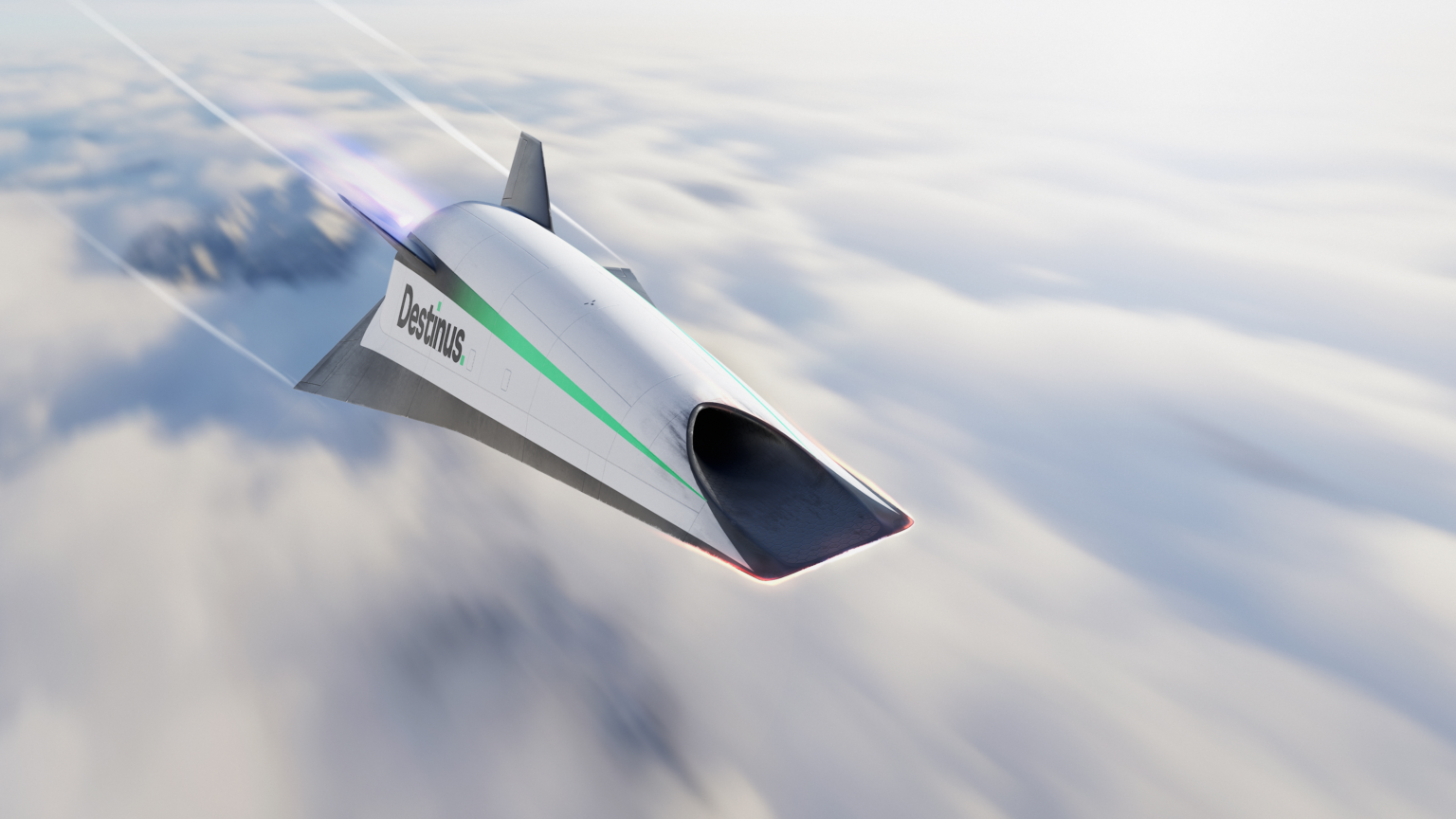Revolutionary Hypersonic Hydrogen-Powered Jet Developed by Swiss Startup, Destinus
Swiss-based startup, Destinus, has been making significant strides in revolutionizing air travel through their hypersonic hydrogen-powered passenger jet. This groundbreaking technology promises to cut down flight times from America to Australia to an astonishingly brief four hours, a stark contrast to the traditional 17 hours or more usually required. Destinus&

Swiss-based startup, Destinus, has been making significant strides in revolutionizing air travel through their hypersonic hydrogen-powered passenger jet. This groundbreaking technology promises to cut down flight times from America to Australia to an astonishingly brief four hours, a stark contrast to the traditional 17 hours or more usually required.
Destinus' Hypersonic Future
Destinus is firmly committed to the vision of a hypersonic future driven by hydrogen. The game-changing feature of their high-speed, long-range hypersonic airplanes lies in their use of hydrogen as a fuel source.
At the culmination of 2022, the company triumphantly announced successful test flights of its prototype, Eiger. This aircraft, equipped with a comprehensive set of sensors, guidance navigation satellite system receivers, an inertial measurement unit, an air data system, angle vanes, and several other instruments and cameras, marks Destinus' second prototype.
Eiger serves as an experimental flight platform, enabling Destinus' engineering teams to test new equipment directly in flight. Data from these test flights are currently being analyzed to develop a new prototype, with plans for a successful supersonic flight and hydrogen propulsion prototype by the end of 2023.
According to Destinus, the first commercial intercontinental flights, capable of carrying a payload of one ton, are scheduled for 2025. By 2029, the air freighter is expected to handle a payload of 100 tons, with thousands of hyperplanes in operation.
Grant Awards and Collaborations
In March 2023, Destinus received grants from the Spanish Ministry of Science to aid further research and development of supersonic flight using hydrogen as fuel. The first grant will facilitate the construction of a test facility near Madrid dedicated to air-breathing hydrogen engines, with Destinus at the helm of its design.
A second grant will fund research into the intricate aspects of liquid hydrogen-powered propulsion, exploring potential solutions for future supersonic hydrogen-powered aircraft, including the modification of existing jet engines to be hydrogen-powered.
Davide Bonetti, VP of Business Development and Products for Destinus, expressed the company's pleasure in receiving these grants, emphasizing how they align with the strategic vision of Spain and Europe to advance hydrogen flight.
The Rising Tide of Hydrogen-Powered Flights
Hydrogen power has seen increased interest in recent years due to its sustainability, affordability, and abundance. It is a clean fuel, with its combustion resulting in heat and water as the primary byproducts. Produced from water via electrolysis using renewable energy, hydrogen is readily available. PWC predicts that the cost of green hydrogen will halve by 2030.
In line with this trend, Los Angeles-based startup Universal Hydrogen successfully completed a 15-minute test flight of its hydrogen-powered plane in March 2023. The flight safely replaced one of the airplane's turbine engines with Universal Hydrogen's fuel cell-electric, megawatt-class powertrain.
Beyond aviation, hydrogen has begun to power other forms of transportation, such as the hydrogen-powered Toyota Mirai. This vehicle combines hydrogen from the fuel tank with oxygen from the outside air to generate electricity to power the motor.
Destinus' progress marks an exciting milestone in the pursuit of sustainable aviation. With the promise of hypersonic hydrogen-powered flights on the horizon, the future of air travel appears both fast and green.




